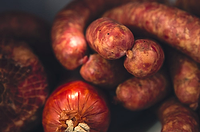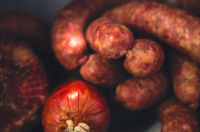South African Court Close to Certifying Class Action in World's Worst Listeriosis Outbreak

Source: Food Safety News
Prominent South African trial attorney Richard Spoor is close to having a judge certifying as a class people who can sue Tiger Brands over the largest listeriosis outbreak in world history. And Spoor credits Tiger Brands with agreeing to go along with the class action when South Africa’s largest food company was within its rights to delay the process by years.
A class action allows a group of plaintiffs to proceed over individual classes. The listeriosis class action for the more than 1,000 victims and their survivors is expected to be certified within a few days by Deputy Judge Phineas Mojapelo.
The outbreak, which also included 216 deaths, was traced to the Tiger Brands polony manufacturer at Polokwane, South Africa. Among the deaths were almost 100 infants under 28 days old who were infected before birth. There could have been more deaths. Health officials reported they had final outcome details on only part of the patients, but those numbers showed a mortality rate of 27 percent.
South Africa’s high court in Johannesburg must certify the class before the case can proceed. America’s prominent food safety attorney, Bill Marler, is consulting with Spoor on the litigation. (Marler is also the publisher of Food Safety News.)
The deputy judge in South Africa indicated his willingness to certify the class after some changes are made in the order that he otherwise found to be reasonable. Mojapelo said he wanted to improve upon some paragraphs he found “too vague.”
The deputy judge said he does not want the order to be subject to any future contests. He wants the order to be clear so that in the event the claimants lose in court, they will not owe the lawyers any money.
Once the class is certified, Spoor’s next challenge will be to find all the eligible Listeria victims and explain to them how the process could help them receive compensation. Spoor and other trial lawyers representing the plaintiffs are taking the case on contingency, meaning they do not get paid unless they win.
Enterprise polony, made by Tiger Brands, was found to be contaminated with Listeria monocytogenes after it was collected from Soweto where nine children at a daycare center fell ill. City health inspectors collected samples from a local hospital. Polony, a processed meat product, is similar to bologna and hot dog products in the U.S.
The largest detected Listeria outbreak in known history was declared ended in September by officials in South Africa. Between Jan. 1, 2017, and July 17, 2018, South Africa recorded 1,060 laboratory-confirmed cases of listeriosis, including 216 deaths.
The outbreak was linked to a ready-to-eat (RTE) processed meat plant owned by Tiger Brands, the Enterprise Foods production facility in Polokwane. However, investigators for the government and in the private sector have not been able to determine how the outbreak strain was introduced to the affected factory.
A total of 12 million South African rand ($810,000) was spent to deal with the outbreak.
Health Minister Aaron Motsoaledi gave processed meats the all clear at a media briefing on Sept. 4.
“A team of World Health Organization, international and local experts (have) agreed that because no cases of listeriosis due to the outbreak strain have been identified since the first week of June 2018, and that over the last two months the incidence rate of laboratory-confirmed listeriosis cases has dropped to pre-outbreak levels, the outbreak of listeriosis is over,” Motsoaledi said.
Looking for a reprint of this article?
From high-res PDFs to custom plaques, order your copy today!





